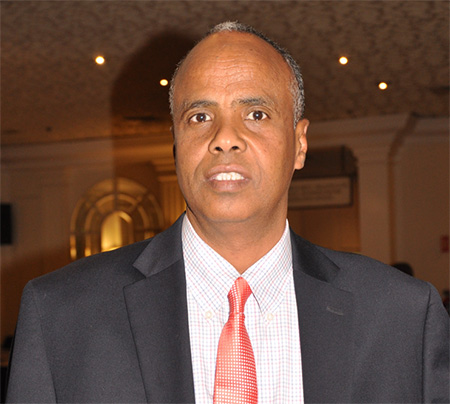 Dr Abdinasir Abubakar Acting - WHO Representative in LebanonBased at the Regional Office for over seven years, Infectious Hazard Prevention and Preparedness Manager for the WHO Health Emergencies Programme (WHE), Dr Abdinasir Abubakar reflects on the core skills and processes he learned as an Incident Management Support Team (IMST) leader. He describes how these skills have enabled his work while serving as the acting WHO Representative in Lebanon.
Dr Abdinasir Abubakar Acting - WHO Representative in LebanonBased at the Regional Office for over seven years, Infectious Hazard Prevention and Preparedness Manager for the WHO Health Emergencies Programme (WHE), Dr Abdinasir Abubakar reflects on the core skills and processes he learned as an Incident Management Support Team (IMST) leader. He describes how these skills have enabled his work while serving as the acting WHO Representative in Lebanon.
Open-mindedness
Equipped with a firm foundation in technical and leadership skills, the former IMST leader thinks that open-mindedness has also helped to provide a smooth transition for his shift to a country office. He notes that he has become a more attentive listener and continues to learn daily from his team and other partners. By listening to ideas and harnessing their technical aspects, these ideas can be packaged to take work forward.
Maintaining momentum
With his experience of the finite nature of an IMST life-cycle, Dr Abubakar encourages using collaboration to maintain momentum gained during an emergency context in normal areas of work. This revolves around strong leadership, sustained engagement and providing all players with regular updates to demonstrate their relevance and clear-cut roles. After witnessing the IMST’s united approach during COVID-19, he aims towards a more results-oriented strategy.
We need leaders to push forward this spirit of collaboration
The high levels of engagement and synergy between WHE and other departments during the COVID-19 pandemic was a crucial element for success, and it should continue, alongside mentoring, training and guiding of key players.
Being an influencer
To pave the way for WHO’s work in the Region, Dr Abdinasir Abubakar stresses the importance of building one’s diplomatic, technical and negotiating skills, within and outside the Organization, and being open to receiving guidance. By nurturing these skills, donors in particular can better avail resources during emergency situations.
Team building
As part of a dynamic team, Dr Abubakar's role at the Country Office in Lebanon has empowered him to put his leadership skills into practice to advance the health agenda. Touching on his work coordinating the response to COVID-19 as well as other emergencies, he underlines the importance of cross-departmental cohesion and aligning senior management and technical departments towards shared goals.
To include a variety of expertise, a strong multisectoral team should be built
Networking
Dr Abdinasir Abubakar believes that by establishing networks within and outside WHO, and sustaining these collaborations, WHO’s core mandate can be implemented as a WHO Representative and an IMST manager. By uniting donors, United Nations agencies, embassies and nongovernmental organizations, health can be prioritized on national agendas, alongside WHO’s role in achieving health for all.


